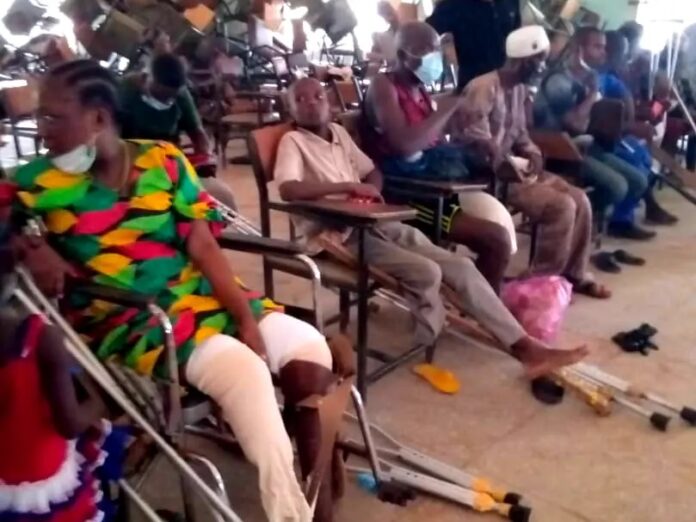By Shakirah Adunola
The Resource Centre for the Blind (RCB) has called on governments at all levels to provide an enabling environment for persons with visual impairments, and also create policies that would benefit them.
The Director of RCB, Temitayo Ayinla-Omotola, stated this during the first graduation ceremony and fundraising event tagged “Dining in the Dark.”
Ayinla-Omotola who said that the event was organised to educate citizens on how to treat visually impaired persons, added that the centre, which has a capacity for 16 residential visually impaired students, provides flexible and customised programmes that suit the needs of each student.

He also explained that the centre provides rehabilitation and training for persons with visual impairment to enable them to live independently and maximise their full potential.
She said that students, who have received training at the centre and are academically inclined, were encouraged to enroll in higher institutions to further their studies.
The director, however, called on the government at all levels to provide an enabling environment for persons with visual impairments to create policies that will benefit them.
She said: “At the Resource Centre for the Blind, we also train them in English language, mathematics, science, Arabic, Braille, ICT, music, mobility and orientation, and extra-curricular activities.”
“The centre’s curriculum has evolved to adapt to the changing demands of the modern world. Every student is given priority attention, and no one is left out. The centre demonstrates that when one loses his sight, it is not the end of the world, irrespective of age, status, or academic qualifications. There is room for everyone and something to be learned.”
Also, a member of the United Nations Committee on the Rights of Persons with Disabilities, Danlami Umaru Basharu, said that Nigerians should create an equal and enabling environment for people with disabilities in the country.
Basharu stated that understanding disability and persons living with disability would be crucial in knowing how to respond to their needs, aspirations, and expectations.
He stated that non-disabled persons would find it very difficult to fully comprehend the challenge facing persons with disabilities until an equal and enabling environment is created.
Basharu also lamented that the fate of many persons with disabilities is characterised by discrimination, stigmatisation, exploitation, and marginalisation.
He noted that society must learn to support parents of persons with disabilities to continue to give the love and care that children, and all persons with disabilities desire.
The UN committee member added that the key to independence is to break down the attitudes and environmental barriers that prevent people with disabilities from achieving their full potential.


